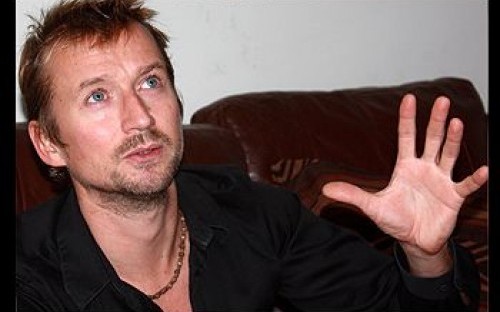“First of all, I’d like to apologize with all of you. If there weren’t so many bastards like me in the City, you guys could actually have a job right now”.
This is how Geraint Anderson – the man who back in 2006 broke the City’s code of silence by publishing a column in the London Evening Standard exposing bankers’ and analysts’ lack of morality – began his talk about ‘Greed, Insider trading, and Drugs’ at Cass Business School.
But what was he even doing there?
The recent economic crisis has brought attention to the role of ethics in the business world. In order to better understand how ethics can be implemented in business, Edouard Larpin, current student at Cass, started producing the CassEthics podcast series, where he interviews academics and practitioners about the importance of introducing moral principles to business.
Yesterday, it was the turn of the author of the best-seller ‘Cityboy: Beer And Loathing In The Square Mile’. Anderson told the students what it was like to be a research analyst before 2008: “I spent my money on cocaine, champagne, and strippers. What is even worse, I wasted the rest”, he summarizes with characteristic humour.
He explained that making money in the City before the 2008 financial crisis was relatively easy: “There was a lack of competition, and banks were able to take exceptional risks – that ultimately led to exceptional profits – because they knew they were too big to fail and that they would have eventually gotten bailout loans”.
As a student, Anderson didn’t plan on working for a bank. In fact, after a history degree at Cambridge, and a master in Revolutions at Sussex University, Anderson decided he wanted to travel the world, and sell trinkets from India. However, his family wasn’t happy about it, and his brother Hugh set up an interview for him with a bank. “How I got the job still surprises me”, he says, “I didn’t know anything about banking and numbers; the only thing I was able to do was drink with clients and bring them out”.
Since the crisis, though, things in the City have dramatically changed: “Today professionalism is required, and banks have significantly reduced their entertainment expenses”. But to Cass business students, he recommends: “It’s still a human business, and therefore you need to make your client feel he’s your friend”.
Anderson says he always considered his job as temporary: “I thought I would do it for a few years, save some money, and then quit. But quitting is difficult, especially if you don’t have an alternative. You start thinking like a bank robber”, he explains. “I started saying to myself ‘just one last year’”. But at the end of each year money provided a good reason to stay in the business: “My first annual bonus was £14,000, the last one £500,000”.
And yet, after a really bad motorbike accident in 2008, Geraint decided it was time to resign, and re-invented himself as a successful writer. His third book ‘Just Business’ is coming out in June.
In ‘Cityboy’, Anderson describes his life as a utilities analyst as a mix of lavish corporate entertainment and ill-gotten gains.
But what about women? Are they a little more ethical than their male colleagues? “You can’t generalize”, he answers, “I’ve seen attractive women flirting with their clients – at the end everybody uses what he has to get what he wants. There’s no space for morality in banking – you lose it with your first bonus”.
Anderson says he’s repentant and is trying to “buy his soul back from the Devil” by building a school in Africa. After the talk, students can buy a copy of ‘Cityboy’ and have it signed by the author. “What did he write on yours?” asks one. “He wrote ‘Greed is good’”, the other says.
RECAPTHA :
d3
98
4e
f9







